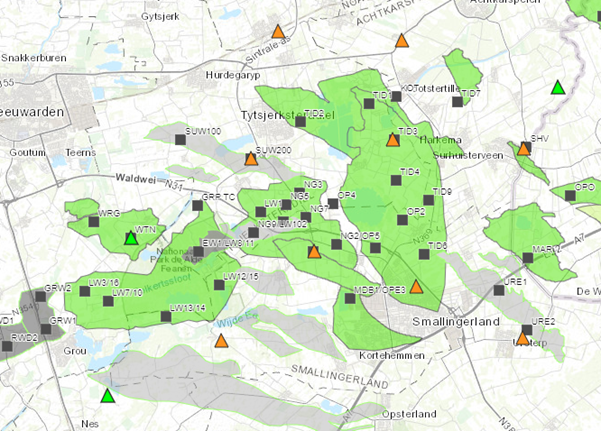Gas extraction and subsidence
Tytsjerksteradiel is the municipality with the most small gas fields in the Netherlands. Gas has been extracted from our soil since the 1960s, resulting in subsidence.
'It hat genôch west! The limit has been reached'
In 2024, Tytsjerksteradiel again sent a clear signal through a letter to the Minister of Climate and Green Growth: we want an end to gas extraction in our municipality. This is because gas extraction leads to subsidence. The expected subsidence due to gas extraction is now estimated at 24 centimeters. To this must be added subsidence due to natural processes such as the settling of the peat. This has consequences for our water management. For us, the limit has now been reached.
Information meeting experts
On November 19, 2024, the municipality organized an information meeting where Vermilion, the TNO, SSM and Mining Damage Commission each explained their role in the gas extraction process. A Q&A and a talking sheet were used to summarize the evening.
Frequently Asked Questions
Laws and regulations
Governments and companies are required to comply with the various laws and regulations related to gas production that have been established both nationally and internationally.

